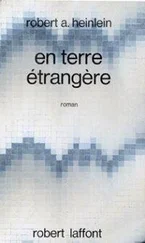Robert Heinlein - Beyond This Horizon
Здесь есть возможность читать онлайн «Robert Heinlein - Beyond This Horizon» весь текст электронной книги совершенно бесплатно (целиком полную версию без сокращений). В некоторых случаях можно слушать аудио, скачать через торрент в формате fb2 и присутствует краткое содержание. Жанр: Фантастика и фэнтези, на английском языке. Описание произведения, (предисловие) а так же отзывы посетителей доступны на портале библиотеки ЛибКат.
- Название:Beyond This Horizon
- Автор:
- Жанр:
- Год:неизвестен
- ISBN:нет данных
- Рейтинг книги:4 / 5. Голосов: 1
-
Избранное:Добавить в избранное
- Отзывы:
-
Ваша оценка:
- 80
- 1
- 2
- 3
- 4
- 5
Beyond This Horizon: краткое содержание, описание и аннотация
Предлагаем к чтению аннотацию, описание, краткое содержание или предисловие (зависит от того, что написал сам автор книги «Beyond This Horizon»). Если вы не нашли необходимую информацию о книге — напишите в комментариях, мы постараемся отыскать её.
Beyond This Horizon — читать онлайн бесплатно полную книгу (весь текст) целиком
Ниже представлен текст книги, разбитый по страницам. Система сохранения места последней прочитанной страницы, позволяет с удобством читать онлайн бесплатно книгу «Beyond This Horizon», без необходимости каждый раз заново искать на чём Вы остановились. Поставьте закладку, и сможете в любой момент перейти на страницу, на которой закончили чтение.
Интервал:
Закладка:
"Why, Master Hamilton," put in the attendant, "how you are sweating! Don't you feel well?" Transferring the baby with casual efficiency to her left arm, she picked up a pad and wiped his forehead. "Take it easy. Seventy years in this one location and we've never lost a father."
Hamilton started to tell her that the gag was ancient when the establishment was new, but he restrained himself. He felt a little inhibited, a rare thing for him. "We'll take the child out for a while," the attendant went on. "Don't stay too long."
Mordan excused himself cheerily and left.
"Felix," she said thoughtfully, "I've been thinking about something."
"So?"
"We've got to move."
"Why? I thought you liked our place."
"I do. But I want a place in the country."
He looked suddenly apprehensive. "Now, darling, you know I'm not the bucolic type."
"You don't have to move if you don't want to. But Theobald and I are going to. I want him to be able to get himself dirty and have a dog and things like that."
"But why be so drastic? All development centers run to the air, sunshine, and the good 'earth motif.'
"I don't want him spending all his time in development centers. They're necessary, but they're no substitute for family life."
"I was raised in development centers."
"Take a look at yourself in the mirror."
The child grew in no particularly spectacular fashion. He crawled at a reasonable age, tried to stand, burned his fingers a few times, tried to swallow the usual quota of unswallowable objects.
Mordan seemed satisfied. So did Phyllis. Felix had no criteria.
At nine months Theobald attempted a few words, then shut up for a long time. At fourteen months he began speaking in sentences, short and of his own structure, but sentences. The subjects of his conversation, or, rather, his statements, were consistently egocentric. Normal again-no one expects an infant to write essays on the beauties of altruism.
"That," remarked Hamilton to Mordan one day, hooking a thumb toward where Theobald sat naked in the grass, trying to remove the ears from an unco-operative and slightly indignant puppy, "is your superchild, is he not?"
"Mm, yes."
"When does he start doing his miracles?"
"He won't do miracles. He is not unique in any one respect; he is simply the best we can conceive in every respect. He is uniformly normal, in the best sense of the word-optimum, rather."
"Hmm. Well, I'm glad he doesn't have tentacles growing out of his ears, or a bulging forehead, or something like that. Come here, son."
Theobald ignored him. He could be deaf when he chose; he seemed to find it particularly difficult to hear the word "No." Hamilton got up, went over and picked him up. He had no useful purpose in mind; he just wanted to cuddle the child for a while for his own amusement. Theobald resisted being separated from the pup for a moment, then accepted the change. He could soak up a great deal of petting-when it suited him. If it really did not suit him he could be extremely unco-operative.
Even to the extent of biting. He and his father had put in a difficult and instructive half hour in his fifteenth month settling the matter, beyond cautioning Felix to be careful not to damage the brat Phyllis had let them have it out. Theobald did not bite anymore, but Felix had a permanent, small, ragged scar on his left thumb.
Hamilton was almost inordinately fond of the child, although he was belligerently off-hand in his manner. It hurt him that the child did not really seem to care anything about him and would as readily accept petting and endearments from "Uncle Claude"-or a total stranger-if he happened to be in the mood to accept anything of the sort.
On Mordan's advice and by Phyllis's decision (Felix was not offered a vote in the matter-she was quite capable of reminding him that she, and not he, was a psycho-pediatrician) Theobald was not taught to read any earlier than the usual age of thirty months, although experimental testing showed that he could comprehend the basic idea of abstracted symbols a little earlier than that. She used the standard extensionalized technique of getting a child to comprehend symbolic grouping-by-abstracted-characteristics while emphasizing individual differences. Theobald was rather bored with the matter and appeared to make no progress-at all for the first three weeks. Then he seemed suddenly to get the idea that there might be something in it for him-apparently by recognising his own name on a stat which Felix had transmitted from his office, for shortly thereafter he took the lead in his own instruction and displayed the concentrated interest he was capable of.
Nine weeks after the instruction began it was finished. Reading was an acquired art: further instruction would merely have gotten in his way. Phyllis let him be and restricted her efforts in the matter to seeing to it that only such reading matter was left in his reach as she wished him to attempt. Otherwise he would have read anything he could lay hands on; as it was she had to steal scrolls from him when she wanted him to exercise or eat.
Felix worried about the child's obsession with printed matter. Phyllis told him not to. "It will wear off. We've suddenly extended his psycho field; he's got to explore it for a while."
"It didn't with me. I still read when I should be doing something else. It's a vice."
He read stumblingly and with much subvocalization and was, of course, forced to call for help frequently when he ran on to symbols new to him and not sufficiently defined by context. A home is not as well equipped for extensional instruction as a development center. In a center no words appear in a primer which are not represented by examples which can be pointed to, or, if the words are action symbols, the actions are such that they can be performed there and then.
But Theobald was through with primers before he should have been and their home, although comfortably large, would have needed to be of museum size to accommodate samples in groups of every referent he inquired about. Phyllis's resourcefulness and histrionic ability were stretched to the limit, but she stuck to the cardinal principle of semantic pedagogy: never define a new symbol in terms of symbols already known if it is possible to point to a referent instead.
The child's eidetic memory first became evident in connection with reading. He read rapidly if badly and remembered what he read. Not for him was the childish custom of cherishing and rereading favorite books. A once-read scroll was to him an empty sack; he wanted another.
"What does 'infatuated' mean, Mama?" He made this inquiry in the presence of his father and Mordan.
"Hmmm," she began guardedly, "tell me what words you found it sitting with."
"'It is not that I am merely infatuated with you, as that old goat Mordan seems to think-' I don't understand that either. Is Uncle Claude a goat? He doesn't look like one."
"What," said Felix, "has that child been reading now?" Mordan said nothing, but he cocked a brow at Felix.
"I think I recognize it," Phyllis said in an aside to Felix. Then, turning back to the child, she added, "Where did you find it? Tell Phyllis."
No answer.
"Was it in Phyllis's desk?" She knew that it had been; there was secreted in there a bundle of stats, mementos of the days before she and Felix had worked out then" differences. She had the habit of rereading them privately and secretly. "Tell Phyllis."
"Yes."
"That's out of bounds, you know."
"You didn't see me," he stated triumphantly.
"No, that is true." She thought rapidly. She wished to encourage his truthfulness, but to place a deterrent on disobedience. To be sure, disobedience was more often a virtue than a sin, but-Oh, well! She tabled the matter.
Felix muttered, "That child seems to have no moral sense whatsoever."
Читать дальшеИнтервал:
Закладка:
Похожие книги на «Beyond This Horizon»
Представляем Вашему вниманию похожие книги на «Beyond This Horizon» списком для выбора. Мы отобрали схожую по названию и смыслу литературу в надежде предоставить читателям больше вариантов отыскать новые, интересные, ещё непрочитанные произведения.
Обсуждение, отзывы о книге «Beyond This Horizon» и просто собственные мнения читателей. Оставьте ваши комментарии, напишите, что Вы думаете о произведении, его смысле или главных героях. Укажите что конкретно понравилось, а что нет, и почему Вы так считаете.










